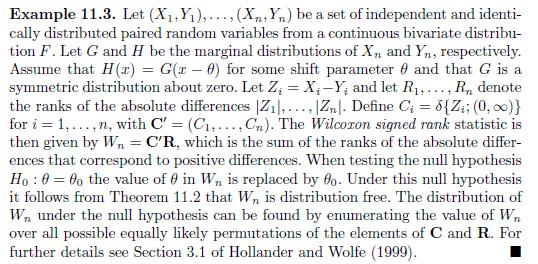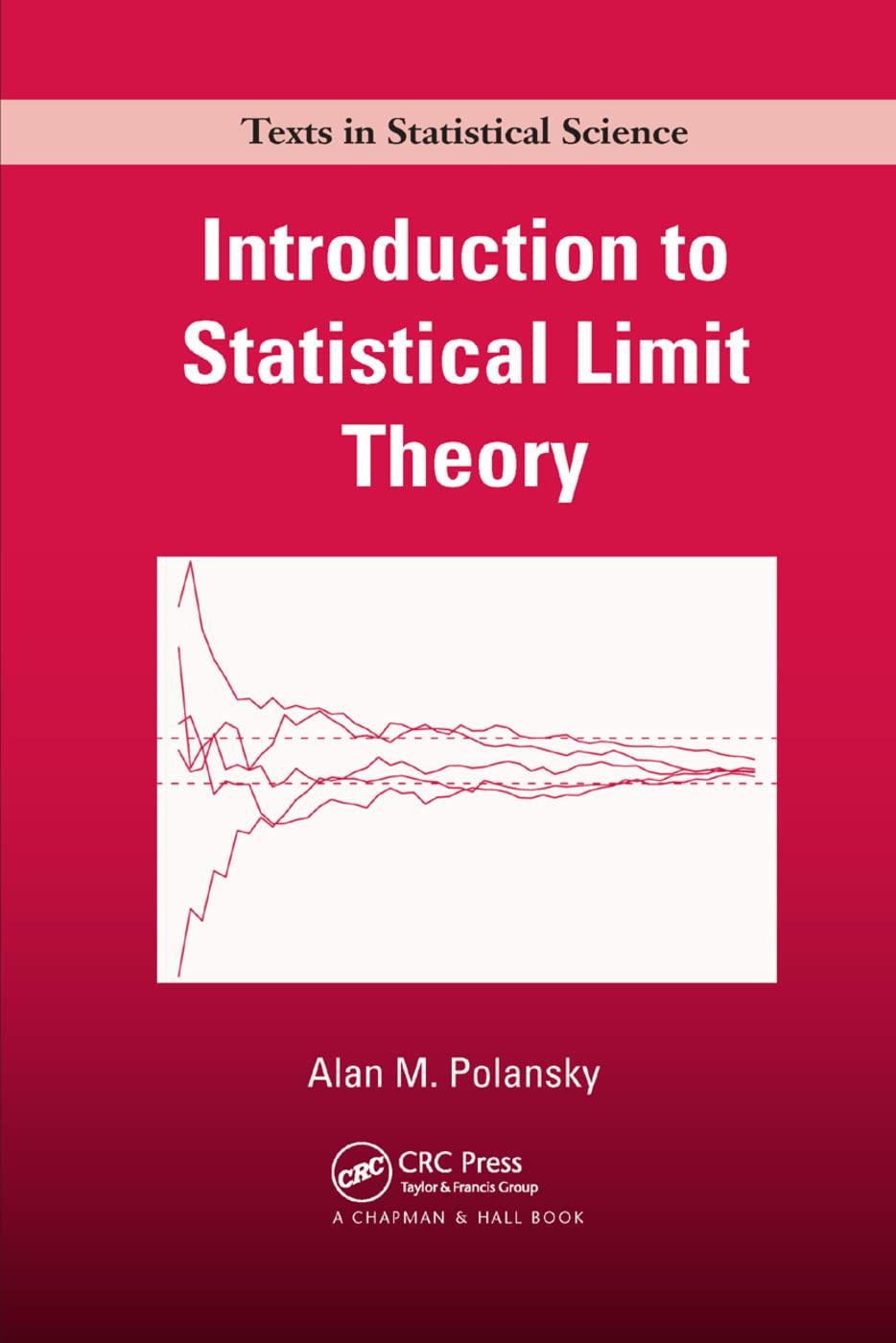Let (X_{1}, ldots, X_{n}) be a set of independent and identically distributed random variables from a continuous
Question:
Let \(X_{1}, \ldots, X_{n}\) be a set of independent and identically distributed random variables from a continuous distribution \(F\) that is symmetric about a point \(\theta\). Let \(\mathbf{R}\) be the vector of ranks of \(\left|X_{1}-\thetaight|, \ldots,\left|X_{n}-\thetaight|\) and let \(\mathbf{C}\) be an \(n \times 1\) vector with \(i^{\text {th }}\) element \(c_{i}=\delta\left\{X_{i}-\theta ;(0, \infty)ight\}\) for \(i=1, \ldots, n\). The signed rank statistic was seen in Example 11.3 to have the form \(W=\mathbf{C}^{\prime} \mathbf{R}\). In Example 11.12 is was further shown that
\[n^{1 / 2}\left(\begin{array}{l}n \\2\end{array}ight)^{-1}[W-E(W)] \xrightarrow{d} Z_{2}\]
as \(n ightarrow \infty\), where \(Z_{2}\) has a \(\mathrm{N}\left(0, \frac{1}{3}ight)\) distribution.
a. Using direct calculations, prove that under the null hypothesis that \(\theta=0\) it follows that \(E(W)=\frac{1}{4} n(n+1)\).
b. Using direct calculations, prove that under the null hypothesis that \(\theta=0\) it follows that \(V(W)=\frac{1}{24} n(n+1)(2 n+1)\).
c. Prove that
\[\frac{W-\frac{1}{4} n(n+1)}{\left[\frac{1}{24} n(n+1)(2 n+1)ight]^{1 / 2}} \xrightarrow{d} Z,\]
as \(n ightarrow \infty\) where \(Z\) has a \(\mathrm{N}(0,1)\) distribution.

Step by Step Answer:






